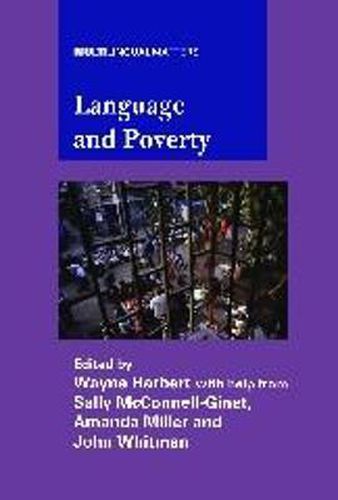Readings Newsletter
Become a Readings Member to make your shopping experience even easier.
Sign in or sign up for free!
You’re not far away from qualifying for FREE standard shipping within Australia
You’ve qualified for FREE standard shipping within Australia
The cart is loading…






This book explores the bidirectional relationship between language and poverty, from the perspectives of linguistics, language policy and planning, economics, anthropology, and sociology. On the one hand, poverty affects language survival; in modern times the fundamental determinants of language shift and language death are economic. On the other hand, the languages people speak, or don’t speak, can influence their economic status in substantial ways, limiting or facilitating access to jobs and education and full participation in the functions of the society. The issues encompassed by the twin themes of the volume have assumed growing significance in an era of increasing globalization and accelerating change in economies, technologies and traditional social structures. They are of practical concern to people in a wide range of disciplines and professions, including politicians, educators, social workers, language planners, and others who work and live in multilingual contexts.
$9.00 standard shipping within Australia
FREE standard shipping within Australia for orders over $100.00
Express & International shipping calculated at checkout
This book explores the bidirectional relationship between language and poverty, from the perspectives of linguistics, language policy and planning, economics, anthropology, and sociology. On the one hand, poverty affects language survival; in modern times the fundamental determinants of language shift and language death are economic. On the other hand, the languages people speak, or don’t speak, can influence their economic status in substantial ways, limiting or facilitating access to jobs and education and full participation in the functions of the society. The issues encompassed by the twin themes of the volume have assumed growing significance in an era of increasing globalization and accelerating change in economies, technologies and traditional social structures. They are of practical concern to people in a wide range of disciplines and professions, including politicians, educators, social workers, language planners, and others who work and live in multilingual contexts.